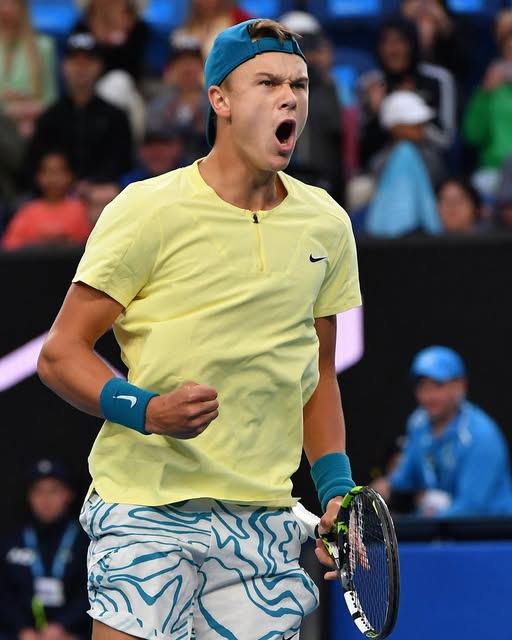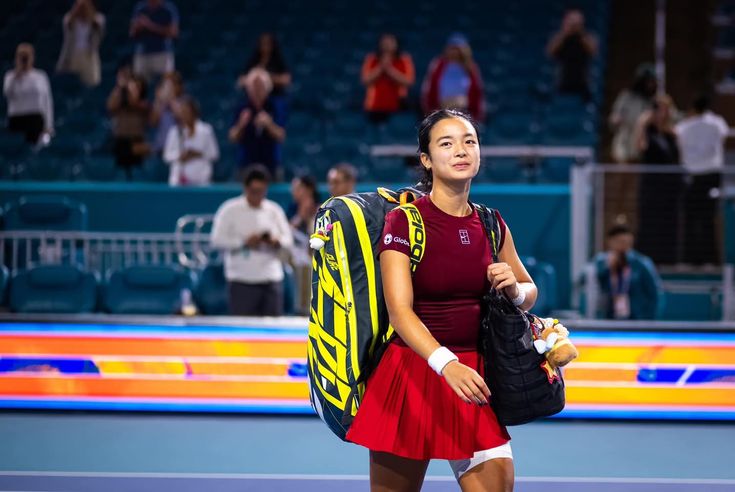Introduction: A Comeback Powered by a Hidden Weapon

In the high-octane world of professional tennis, raw power and speed often steal the spotlight. But sometimes, it’s a more nuanced ability—one invisible to the untrained eye—that defines a champion. As Jannik Sinner stages a much-anticipated comeback at the Italian Open, Rennae Stubbs, former coach of tennis legend Serena Williams, has shed light on one unique skill that elevates the young Italian beyond his peers.
Her revelation has stunned fans, coaches, and analysts alike—and it could be the defining factor in Sinner’s journey to Grand Slam glory.
In this article, we break down what this special ability is, why it matters, and how it could reshape the landscape of men’s tennis. Plus, we address frequently asked questions, dive into eye-opening statistics, and analyze how this insight could help Sinner dominate not only the Italian Open but also the ATP Tour for years to come.
The One Ability That Sets Jannik Sinner Apart
According to Rennae Stubbs, the one trait that separates Jannik Sinner from other top players is his emotional maturity under pressure—an intangible yet powerful asset that she believes “you can’t teach, only refine.”
1. Emotional Control: The Hidden Champion Trait
Stubbs emphasizes that while most young players crumble under high-stakes moments, Sinner thrives. She described his ability to remain composed in crucial points, manage the momentum, and never stray from his game plan as “Federer-like.”
“You don’t often see that kind of emotional discipline in players under 25, let alone someone just 22,” said Stubbs in a recent interview. “It’s his inner calm that allows him to reset after mistakes, pivot strategies mid-match, and outlast mentally weaker opponents.”
2. A Look at the Numbers: Sinner’s Clutch Performance
Let’s back Stubbs’ claim with data:
- Break points saved: Sinner ranks among the top 5 on the ATP Tour in saving break points (73% average).
- Deciding sets win percentage: 69%—well above the tour average of 54%.
- Wins after losing the first set: 60% of his 2024 wins came from behind.
These are not random stats. They indicate a pattern: Jannik Sinner doesn’t panic—he adapts. And that’s rare.
Why This Sets Sinner Apart from His Peers
Let’s put it into context by comparing Sinner’s emotional resilience with some of his biggest rivals:
| Player | Age | Comeback Wins % | Break Points Saved % | Mental Game Rating |
|---|---|---|---|---|
| Jannik Sinner | 22 | 60% | 73% | 9.5/10 |
| Carlos Alcaraz | 21 | 48% | 65% | 8.5/10 |
| Holger Rune | 21 | 42% | 61% | 7.5/10 |
| Alexander Zverev | 27 | 55% | 67% | 8/10 |
These metrics are not just vanity stats—they represent decision-making under pressure, risk management, and mental clarity.
The Italian Open Comeback: A Test of Grit
Jannik Sinner’s participation in the 2025 Italian Open was uncertain due to injury, but his return has been nothing short of electric. Despite not playing at 100%, he has advanced past early rounds with cool precision, defeating more experienced opponents without displaying signs of mental fatigue.
3. The Power of the Home Crowd
Another reason why Sinner’s composure is so pivotal right now is the pressure of performing on home soil. The Italian Open, held in Rome, is the crown jewel of Italian tennis.
For most players, this added pressure results in nerves. For Sinner? It’s fuel.
“He doesn’t just play in front of the crowd; he absorbs their energy and channels it wisely,” noted Stubbs. “You can’t coach that kind of internal compass.”
Frequently Asked Questions (FAQs)
1. Who is Rennae Stubbs, and why is her opinion valuable?
Rennae Stubbs is a former world No. 1 doubles player and former coach of Serena Williams. Her insights carry weight due to decades of experience both on the court and as a coach and commentator. She’s respected for her honest, tactical evaluations.
2. What’s the difference between emotional control and mental toughness?
Emotional control is the ability to regulate emotions in real-time—like staying calm after losing a point. Mental toughness is a broader term referring to long-term resilience. Sinner displays both, but it’s his real-time emotional regulation that sets him apart.
3. How has Sinner improved in 2025 compared to previous years?
Statistically:
- First serve percentage has risen to 67% from 62% in 2023.
- Unforced errors per match have dropped by 18%.
- His baseline consistency has also improved, giving him more control over rally lengths.
Mentally:
- Fewer on-court outbursts.
- More consistent body language.
- Tactical changes mid-match—something he didn’t do effectively until recently.
4. What are his chances of winning the Italian Open this year?
While it’s still early in the tournament, bookmakers and analysts have bumped Sinner’s odds from 10/1 to 4/1 following his second-round victory. If his form holds—and his emotional poise remains intact—he’s a top contender.
5. Is this trait enough to win a Grand Slam?
Not on its own—but it’s a critical piece. Add that to his fitness, improved serve, and growing match IQ, and yes, it positions him strongly for a Grand Slam breakthrough within the next 12 months.
How This Insight Changes the ATP Landscape
Jannik Sinner isn’t just another “Next Gen” player. If Stubbs is right—and the numbers say she is—then we’re witnessing the rise of a unique athlete who could challenge the dominance of Alcaraz, Medvedev, and Djokovic.
4. Coaches Are Taking Notes
Stubbs’ comments have already ignited chatter among ATP coaches. According to inside sources:
- Two top-20 players are now working with sports psychologists to develop emotional regulation skills.
- Several academies in Europe are integrating “emotional intelligence” modules into youth training programs.
This is more than a compliment—it’s a blueprint shift.
The Business of Composure: Why Sponsors Love Sinner
Sponsors are not just interested in how often you win, but how you win. Sinner’s composed demeanor is marketable—it reflects leadership, reliability, and excellence.
He has already landed major partnerships with:
- Nike
- Lavazza
- Fastweb
- Rovagnati
All brands looking to associate with a cool-headed winner, not a volatile risk.
Conclusion: The Calm Before the Championship Storm?
Rennae Stubbs has coached one of the most emotionally fierce athletes in tennis history. For her to single out Jannik Sinner’s emotional maturity as his secret weapon is no small praise—it’s a warning to the competition.
As the Italian Open heats up and the tennis world watches with bated breath, it’s no longer just Sinner’s forehand or footwork under the microscope. It’s his mind—calm, sharp, unshakeable.
And that, as Stubbs argues, could be his greatest advantage of all.


